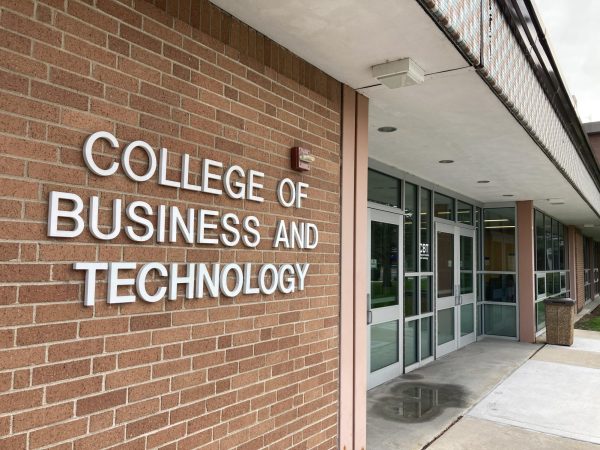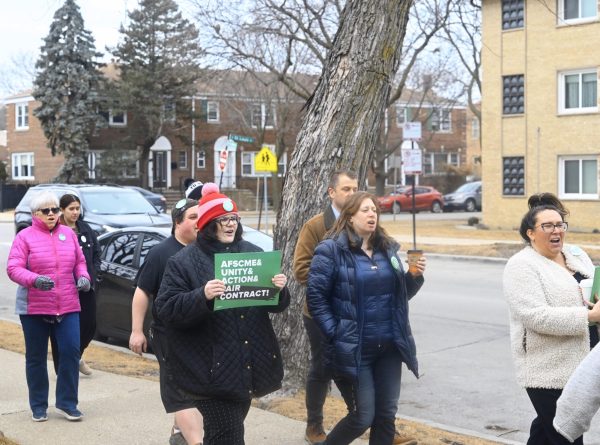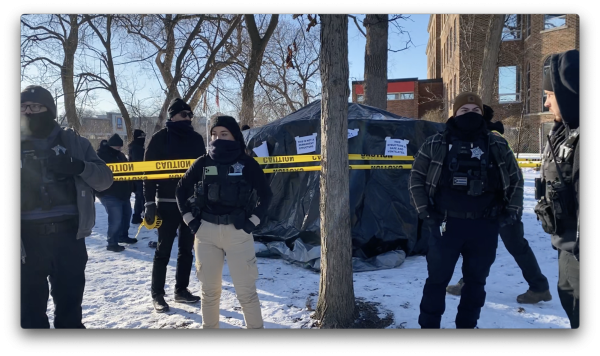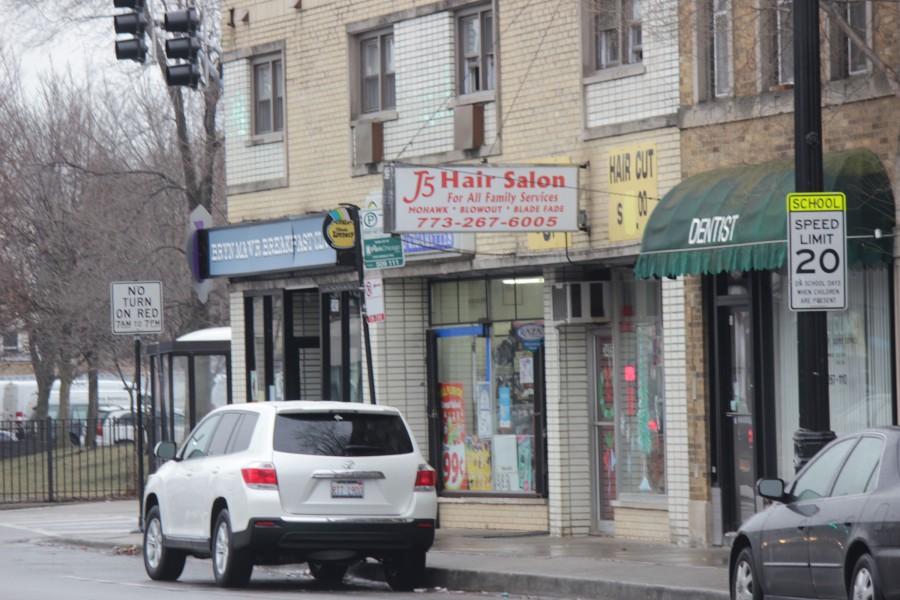NEIU Dreams of Bryn Mawr
More News
Bryn Mawr businesses will either move or shut down because of the sale of the block.
Amid the challenge of a state budget impasse, NEIU’s administration continues to carry out the “Decade of Dreams.”
The “Decade of Dreams” is a ten-year project put together by President Sharon Hahs and her administration that sought to bring student housing to the only public university in Illinois that did not yet have it, along with expansions to other departments.
While the plan did include building student housing on NEIU’s own grounds first, it also called for residence halls along the 3400 Bryn Mawr block between Kimball and Bernard which meant opening up an eminent domain case on each separate business to settle a price before claiming the property as government land.
After nearly a two-year long fight that pitted the school against the property owners along with support they were receiving from the community and NEIU faculty, the cases have finally been settled allowing the “Dreams” project to proceed.
This isn’t the first time the university expands in the neighborhood. Kim Moseid, who has been a resident for forty years, said that the university has been expanding throughout the progression of time.
“The university has changed a lot since I was younger,” Moseid said. “They expanded quite a bit. In my younger years, it was a positive thing because we had a space to go over and play. In my older years, the university has changed and the whole eminent domain thing has changed perspective and opinions on the university.”
From public comments at Board of Trustee meetings to candle light protests, Moseid has been involved in the battle against eminent domain for quite some time.
“They (NEIU) always said they were a community ally and having evoked eminent domain on thriving businesses on Bryn Mawr has kind of shown they’re not really any ally,” Moseid said.
Another resident of the North Park neighborhood had different feelings about the businesses on Bryn Mawr. Dirk Tussing, an NEIU alumnus, said, “The specific block that they’re buying, the city of Chicago has marked it for TIF money. That specific block should be renovated. That’s going to help the neighborhood, the community and the city of Chicago as a whole. Anybody who’s lived around for a couple of years knows those businesses used to be thriving but now are just vacancies.”
Tussing said he moved into neighborhood specifically to be close to NEIU.
“I take advantage of the campus facilities almost daily and so I’m walking through the neighborhood daily,” he said. “Those businesses, on that specific block, have been declining for years.”
Moseid is not a stranger to what NEIU can and has offered the community.
“Of course they still have a lot of positive things in the neighborhood,” she said. “We can all go over there and use the rec center and are welcome to go and enjoy the theatre productions that are over there. But the eminent domain is kind of like a black backdrop to the whole thing.”
While she may recognize the benefits of a university in the community she is also wary of those in charge of the university.
“I want to be clear,” Moseid said. “It’s not the university, it’s not the student and it’s not the faculty, over the years since I’ve been here, of course they’ve gone through many administrations. So it’s this administration that made that bad decision, it has to be really clear that it’s not the university. It’s the administration that has taken the university down this really dark path.”
She mentioned previous administrations, who throughout her time in the neighborhood, have hosted events for the community.
Tussing doesn’t share the concerns that some other neighbors do about a student demographic coming into the neighborhood, in fact, he looks forward to it.
“It’s a good way to get that whole strip started in the right direction, to reverse the decline by increasing foot traffic and residents,” he said.
Bill Tong, another alumnus of NEIU, one who worked as an adjunct professor at NEIU for some time in his life, has been on the other end of things. As a property owner, he fought against the use of eminent domain and often worried what might happen to his mother if her living situation was compromised since she had been living in a property on Bryn Mawr.
“Since 1947, that restaurant was my grandfather’s life work, my father’s life work, we’re losing our family legacy. The fact that NEIU is my alma mater, my sister’s, that makes it all the worse,” Tong said.
Though he believes the fiscal negotiations turned out fairly, it was clear from his tone of voice that he was disappointed with the outcome of things, “I’d like to thank some of the NEIU faculty who helped organize the opposition. Professor Stockdill, Professor Feldman, and neighborhood activists who organized events to publicize this in the neighborhood to get support from the community.”
At this moment in time, the school has not released a timeline for when construction on Bryn Mawr will begin for student housing and the businesses there are allowed to stay up to one more year. They will also be helped with relocation by NEIU.
Chief Communications Officer Mike Dizon at NEIU has confirmed that the school has no additional plans to expand further than the Bryn Mawr block and that the street level of residence halls will include a retail space which will take in considerations from the neighborhood.
The current budget impasse will not impede progress on any of the residence hall projects since they are being funded alternatively by Collegiate Housing Foundation and American Campus Communities.
Your donation will support the student journalists of Northeastern Illinois University's The Independent, either in writers' payment, additional supplies and other items of note. Your contribution will allow us to purchase additional equipment for writers/photographers/illustrators and cover our annual website hosting costs.
Emmanuel Gonzalez









